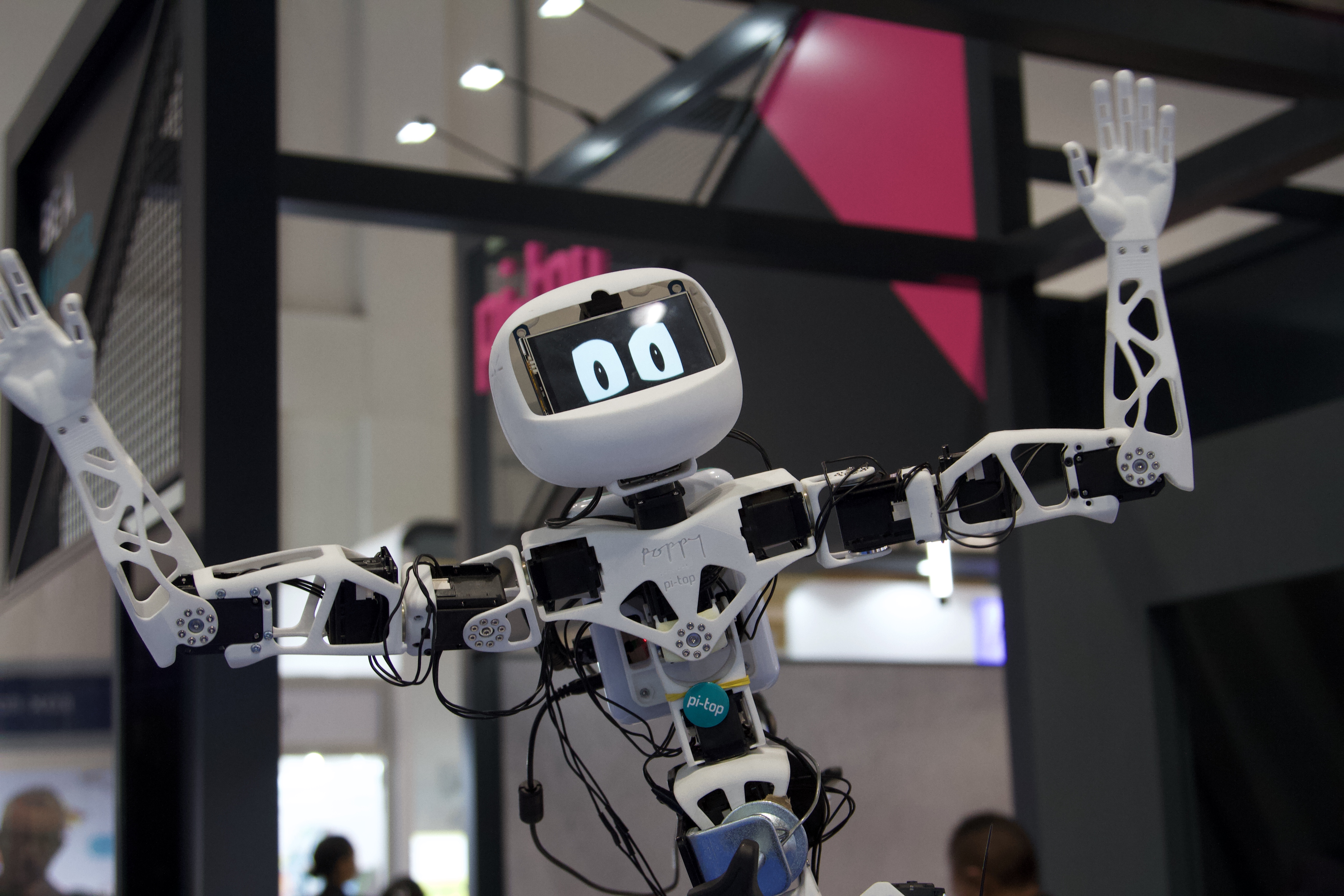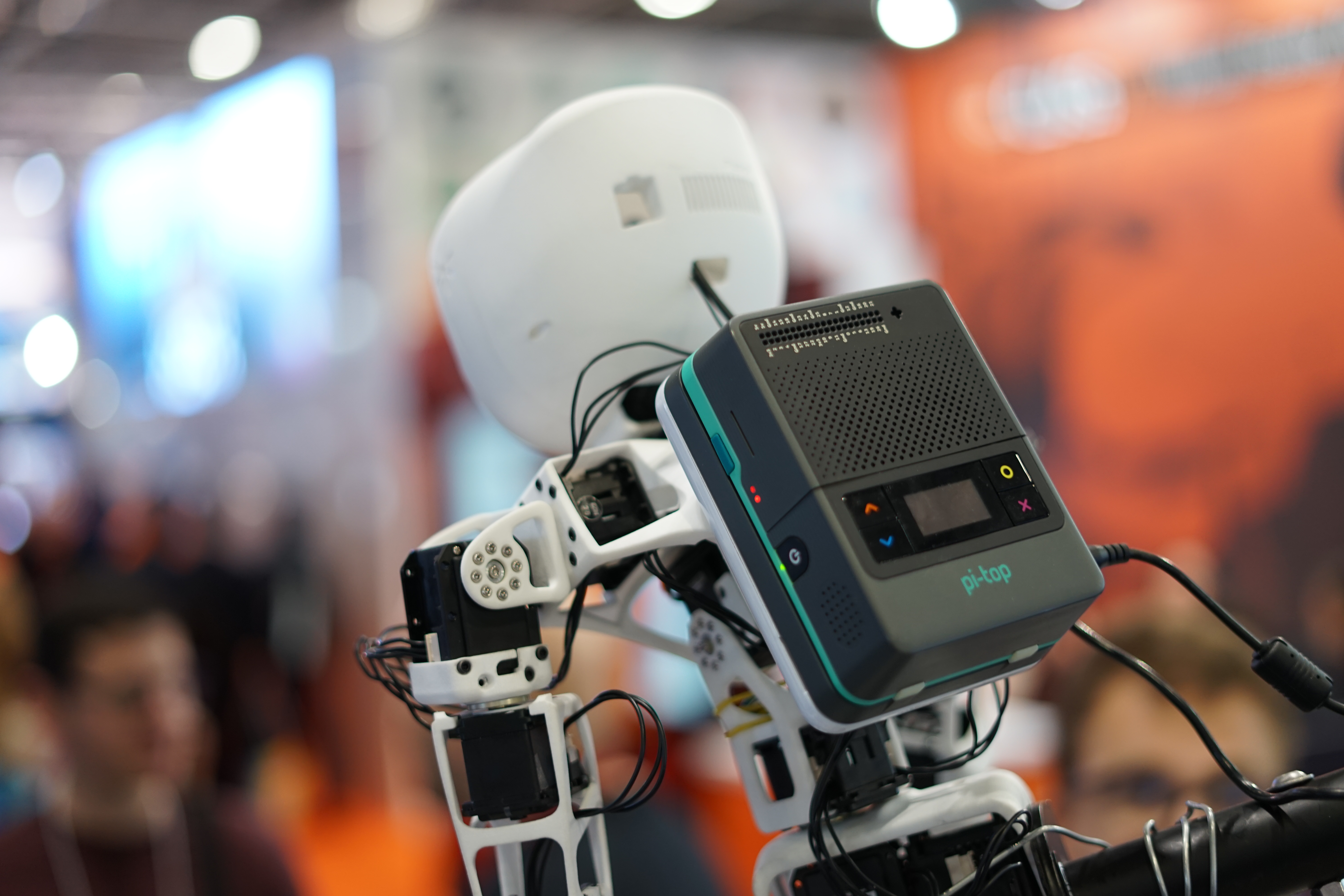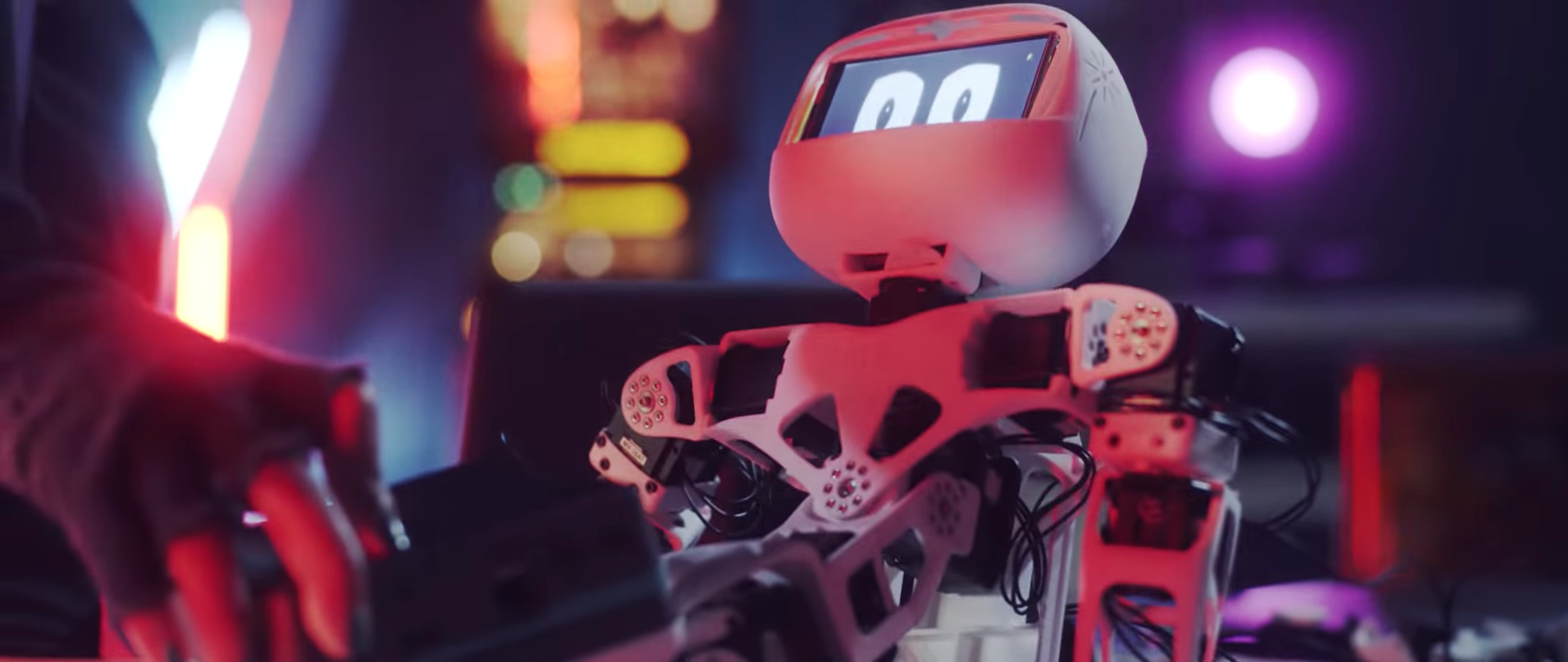In this short series, we speak to the designers and engineers who created our hero projects at Bett Show 2019 to find out how they built them and what problems they overcame.
Poppy, as we affectionately call it, is a 3D printed humanoid robot controlled by the pi-top [4]. Marko Mizdrak, a product manager at pi-top, worked on building and programming the 70cm high robot.
"The big idea behind this was humans have evolved to understand bodies. By creating a humanoid, you're forced to think more about how we humans work, and how we express our emotions," says Marko.
Poppy is optimised for research and education purposes and its modularity allows for a wide range of applications and experimentations. As Marko explains, "we're integrating subjects which historically or traditionally don't really go together like dance and electronics, puppetry and coding, 3D printing and body language."

The process of building Poppy wasn't as seamless as Marko expected it to be. "We ruined a few parts because we built a custom circuit board that would handle power and data and hooking up the HDMI. Basically, we were using a lot of third party boards that did various things. We thought that we'd integrate them all into one board and they'd all work nicely with the pi-top [4]. But we wired some things wrong on the board that we made, which meant we sent the high voltage up the data line and ruined some of the components so after that, it wasn't working."
However, this mistake helped him understand better how the robot works. "It turned out it was just some broken components. We didn't know for sure, so while we were waiting for the components we tried to fix it. Only for when the parts to arrive, we found out it was just the part that needed to change. That was a big relief but also a bit frustrating."

The robot has been to two shows, Bett in London at the beginning of the year and GESS Dubai last week. It was one of the most commented projects on our stand, but Marko is already planning what do to next. "At the two previous shows Poppy was sort of waving at people and doing a bit of a dance. Further down the line we hope to do even more advanced stuff, such as responding to different stimuli, reacting to faces, and do some walking. I'm planning to put some sensors inside that measure her balance."
Want to find out more about our Bett hero projects? Check out how we built our mini Mars rovers, our light and sound installation, and our weather balloon.
